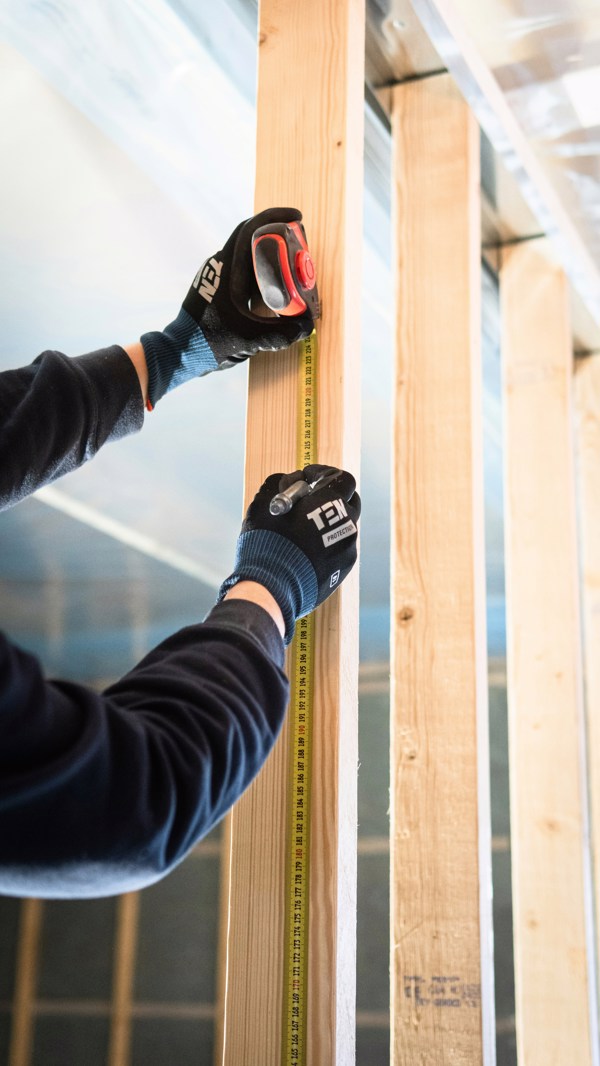Reducing upfront carbon emissions

Did you know that the choice of materials for internal plasterboard walls can significantly impact upfront carbon emissions, making them one of the major contributors after steel and concrete?
This is especially so for projects with a high number of internal walls such as student accommodation, hospitals and residential developments. While commonly used, traditional plasterboard can have a high carbon footprint due to the energy-intensive manufacturing processes. However, there are sustainable alternatives that can reduce this impact:
1. Recycled Plasterboard
Using plasterboard made from recycled gypsum can significantly cut down on carbon emissions and reduce waste. Studies have shown that recycled plasterboard can reduce carbon emissions by approximately 20-25% compared to traditional plasterboard.
2. Low-Carbon Gypsum
Some manufacturers now offer gypsum plasterboard with lower embodied carbon, achieved through more efficient production processes and renewable energy use. These products can reduce carbon emissions by up to 30-40% compared to conventional options.
3. Alternative Materials
Consider using materials like hempcrete or strawboard which have much lower embodied carbon and can even sequester carbon over their lifetime. Hempcrete can reduce carbon emissions by around 60-70% while strawboard can offer reductions of up to 50% compared to traditional plasterboard.
4. Modular or Prefabricated Panels
Designing efficiently with modular or prefabricated panels can minimise waste and improve construction efficiency, further reducing the carbon footprint. Prefabricated panels can lead to an additional 10-15% reduction in carbon emissions due to reduced waste and higher efficiency in construction processes. However, it is important to note the impact of diesel cranes used in installation.
By choosing sustainable materials for internal walls in projects we can create healthier living spaces and make a significant impact on reducing carbon emissions from the outset.
Contact Kretheka in our erbas™ SUSTAIN team to reduce the carbon emissions on your project.
Photo by Gabriel Alenius on Unsplash.
Latest News, Resources & Media

Victoria Park is set to be transformed

Meet Rayssa Hagmann our newest Senior ESD Consultant

2025, Through Our Team’s Eyes

Meet Zach | Electrical Engineer

Festive Wishes

Future Thinking: An evening of Design and Connection Networking Event


